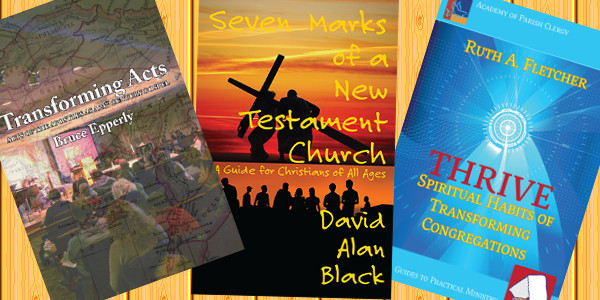Ken Schenck Reviews Wayne Grudem
I’ve been following Ken Schenck’s review of Wayne Grudem’s Systematic Theology, and starting with the second post (Word of God), he is discussing material that I find fascinating. I am not trained as a theologian. Despite having an MA in Religion, I must note that my concentration was Biblical and Cognate Languages, and practically all my courses involved language study and not theology. But one can’t really discuss the Bible as a Christian and not deal with the theology involved.
I should further note that I am obviously much more likely to agree with Ken Schenck than with Wayne Grudem. I’m somewhere around the Arminian territory in theology, not Calvinist if nothing else.
After describing Grudem’s discussion of the Word of God as “anemic” and “implicitly circular” (and I agree), he continues to discussing the Old Testament Canon and then the New Testament. I’m skipping discussion of the nature of the Word of God, even though it is extremely interesting. Ken Schenck provides some excellent pointers to questions that need to be answered if one is to cure the anemia and escape the circularity. (I outline my views on this in my pamphlet What Is the Word of God?)
There is a basic issue here that has troubled me for some time, and that is the starting point. I grew up with a form of evangelism that started by trying to convince people of the truth of the Bible, at least whenever we weren’t just assuming that people accepted the Bible as true already and just needed either to get busy following it, or needed to have their understanding corrected. There was a certain arrogance in the latter part of this approach; we always had to approach people as though they couldn’t really read and needed us to find the texts for them. (I refer to my early experience as a Seventh-day Adventist.)
But my observation is that many Christians have precisely the same approach, and often have very little success. They can revive the belief of someone who grew up with it, but are very rarely successful at talking to someone who is truly not Christian in either background or belief about the authority of the Bible.
But when the early church starts talking to people, I don’t hear anything about the authority of the Bible. Rather, I see testimony to their encounter with the risen Christ. In the modern church we try to convince people of the reliability of the Bible, and get them to believe in the resurrection based on that. The disciples testified to the resurrection and all else followed from that.
I’m sure someone will object that we cannot possibly testify to the resurrection personally. But we can testify to our own experience of the risen Christ and to our own incorporation into the Body of Christ.
So what does this have to do with the canon? I sponsored a panel discussion a few years back that related to the reliability of the Bible. Two members of the panel discussed the topic based on dealing with the reliability of the texts and their transmission. The third started with the church’s creeds. At first that was hard for me to follow.
But it seems to me that it’s difficult to have a robust theology of canonization without having a robust ecclesiology, and in turn this requires a robust pneumatology. I admit to really disliking systematic theology, but it is obviously critical if you’re going to discuss the Bible as a Christian, because the Christian Bible is defined by the Christian church.
Now I don’t mean that the church gets to choose what is in Scripture. That’s where the work of the Holy Spirit comes in. The church recognizes the things which are to be of authority in the church. Without that connection, there is no canon of Scripture, because the canon defines what has authority.
So I would suggest the order of discussion being one’s personal experience of the risen Christ, then the way in which that personal experience brings one into the community, and from the community to the role of the Bible as the community’s authority.
(I discuss this further in my book When People Speak for God and I recommend the discussion of the same topic in From Inspiration to Understanding, [Edward W. H. Vick] especially chapter 2.)


